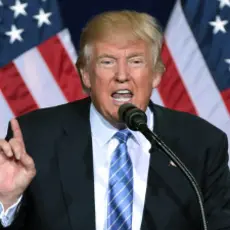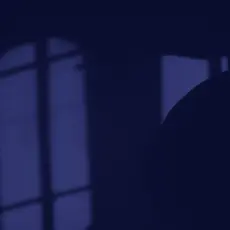Donald Trump, faced with conservative jitters over whom he would name to the Supreme Court if he were elected president, has promised to release a list of names from which he would promise to pick nominees. Today, according to the Associated Press, he released that list.
According to the Daily Beast, all of Trump’s 11 picks are white. Just three are women.
Trump’s list includes two possible picks whom he has frequently mentioned on the campaign trail: federal appeals court judges William Pryor and Diane Sykes. It also includes three additional people whom Ctrl+Click or tap to follow the link"> the Heritage Foundation recommended for Supreme Court posts after Trump said he would consult with the conservative group on his list: Raymond Gruender and Steven Colloton, both federal appeals court judges, and Texas Supreme Court Justice Don Willet.
Also on Trump’s list are Thomas Lee, a Utah Supreme Court justice and brother of Republican Sen. Mike Lee; Michigan Supreme Court Justice Joan Larsen, a former clerk to the late Justice Antonin Scalia; David Stras, who serves on the Minnesota Supreme Court; and federal appeals court judges Thomas Hardman and Raymond Kethledge.
It looks like Trump has, true to his promise, picked potential justices who would advance the conservative efforts to skew the federal courts far to the right. The libertarian publication Reason, for instance, has gushed over Willett for his willingness to overthrow government regulations. (Willett, for what it’s worth, does not seem to return Trump’s admiration.)
We profiled Pryor, Sykes and Colloton last month:
William H. Pryor
One possible Supreme Court nominee whom Trump has specifically praised is William H. Pryor, selected by President George W. Bush to be on the U.S. Court of Appeals for the 11th Circuit. Formerly Alabama’s attorney general, Pryor has a history of extreme right-wing activism, severely criticizing not just women’s right to choose under Roe v. Wade but even the constitutionality of the New Deal.
Pryor has called Roe the “worst abomination in the history of constitutional law.” He has claimed that with the New Deal and other measures, the U.S. has “strayed too far in the expansion of the federal government,” and asserted that it “should not be in the business of public education nor the control of street crime.” As a judge, he has helped uphold a restrictive Georgia voter ID law and joined just one other judge on the 11th Circuit in claiming that “racially disparate effects” should not be enough to prove a violation of Section 2 of the Voting Rights Act, even though the Supreme Court has ruled precisely the opposite.
Pryor came first on a wish list of Supreme Court picks that the Heritage Foundation published shortly after Trump promised to consult them before naming justices.
Diane Sykes
Trump has also repeatedly named Diane Sykes, a Seventh Circuit federal appeals court judge appointed by President George W. Bush, as a potential Supreme Court nominee. Sykes, who previously served on the Wisconsin Supreme Court and a trial court, has also won high praise from the Heritage Foundation and from right-wing Wisconsin Gov. Scott Walker.
In a series of dissents, Sykes has argued in favor of big business and against consumers and discrimination victims, including cases where she Ctrl+Click or tap to follow the link"> tried to limit corporate liability for product defects and overturn a $1 million damages award, to protect a corporation from having to defend against an employee’s claim of discrimination under the Americans with Disabilities Act, and to reverse a $3.5 million bad faith judgment in favor of a Lutheran church against its insurance company.
She showed her anti-reproductive-choice views in providing a lenient sentence to two anti-abortion protesters who had to be forcibly removed from blocking the entrance to a Milwaukee abortion clinic and had previously been arrested 100 times for such offenses; Sykes nevertheless praised them for their “fine character” and expressed “respect” for the “ultimate goals” the blockade “sought to achieve.”
She asserted in dissent that a jury verdict against a criminal defendant should have been upheld even though there was extensive evidence that one of the jurors did not understand English (including a statement from the juror himself), which disqualified him from serving on a jury under Wisconsin law; that a prosecutor should be immune from a claim that he fabricated false evidence that wrongly convicted a man for 17 years; and that a conviction under federal law against someone convicted of domestic violence for possessing firearms should be reversed and that the law itself could well be unconstitutional, in disagreement with all 10 other judges on the court of appeals. She voted in favor of a Wisconsin voter ID law and of a claim by a student group that it should receive state funding and recognition despite its violation of a university rule prohibiting against discrimination based on sexual orientation, an issue on which the Supreme Court reached exactly the opposite conclusion several years later.
She asserted in dissent that a jury verdict against a criminal defendant should have been upheld even though one of the jurors did not understand English, that a prosecutor should be immune from a claim that he fabricated false evidence that wrongly convicted a man for 17 years, and that a conviction under federal law against someone convicted of domestic violence for possessing firearms should be reversed and that the law itself could well be unconstitutional, in disagreement with all 10 other judges on the court of appeals. She voted in favor of a Wisconsin voter ID law and of a claim by a student group that it should receive state funding and recognition despite its violation of a university rule prohibiting against discrimination based on sexual orientation, an issue on which the Supreme Court reached exactly the opposite conclusion several years later.
Steven Colloton
The third name on Heritage’s list of possible Supreme Court nominees is Judge Steven Colloton, who was appointed by President George W. Bush to the Eighth Circuit Court of Appeals, after previous service for Independent Counsel Kenneth Starr and as a U.S. attorney.
Colloton has been at the forefront of a number of troubling Eighth Circuit rulings, including writing decisions that reversed an $8.1 million award to whistleblowers who helped bring a defective pricing and kickback claim against a large corporation and a nearly $19 million class action judgment against Tyson Foods for violating the federal Fair Labor Standards Act. He also joined a ruling making the Eighth Circuit the only appellate court in the country that found that the Obama administration’s efforts to accommodate religious universities and other religious nonprofit objectors to the provision of contraceptive coverage under the ACA was insufficient, an issue n ow being considered by the Supreme Court.
Even more troubling, Colloton has dissented from a number of Eighth Circuit rulings that have upheld the rights of employees, consumers and others against big business and government agencies. He dissented from a decision giving African-American shoppers the opportunity to prove discrimination claims against a large department store, and then saw his view prevail by one vote when the full Eighth Circuit reheard the case. In another case, he dissented from a decision finding that a city had violated the Voting Rights Act by improperly diluting the voting strength of Native Americans.
Colloton dissented from rulings that gave individuals a chance to prove claims of use of excessive force and, in one case, that a city’s policy to use police dogs to bite and hold suspects without any warning was unconstitutional. In three separate cases, he dissented from decisions that employees should at least get the chance to prove in court that their employers retaliated against them for filing sex harassment, age discrimination, or other discrimination claims. In two more decisions, he argued in dissent that public employees should not have the opportunity to prove that they were retaliated against for speaking out in violation of their First Amendment rights. Yet he also claimed in a dissent that the First Amendment rights of a candidate for state supreme court justice were violated by a state judicial code of conduct restricting solicitation and other campaign activity in order to promote judicial impartiality and ethical conduct by judges. Even the conservative Roberts Court that decided the Citizens United case has agreed that these concerns justify solicitation restrictions in state supreme court elections.
This post has been updated to clarify the circumstances of a case in which Sykes asserted in a dissent that a jury verdict should have been upheld despite evidence that one juror was disqualified from serving.





